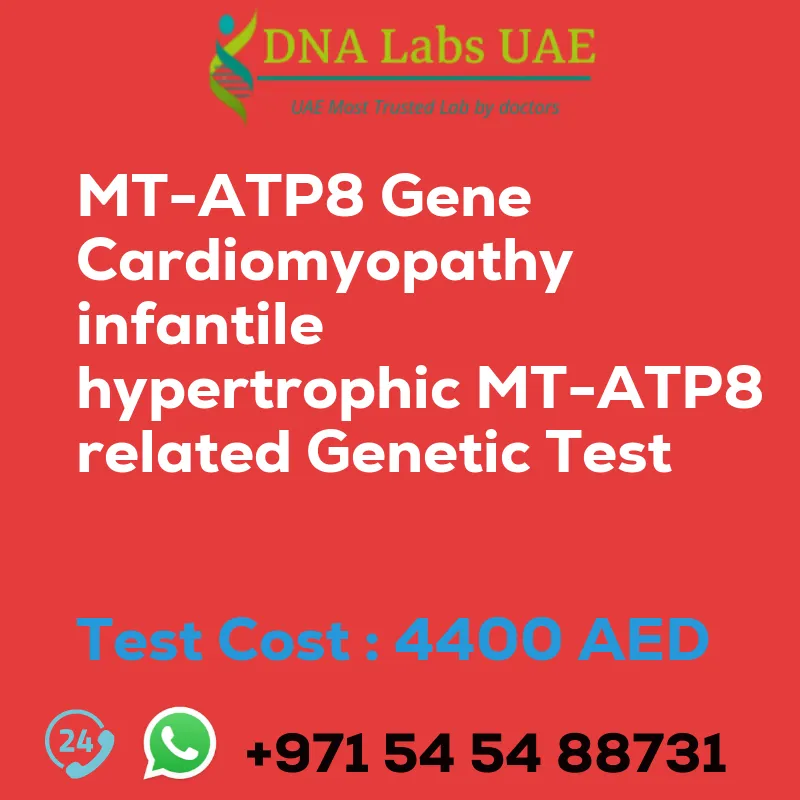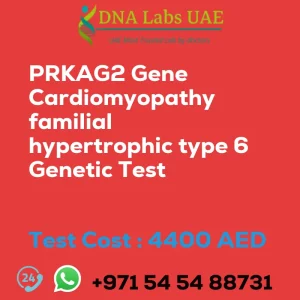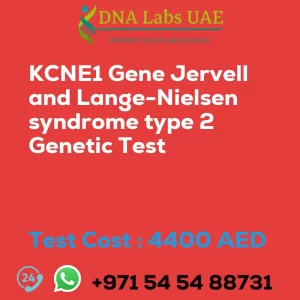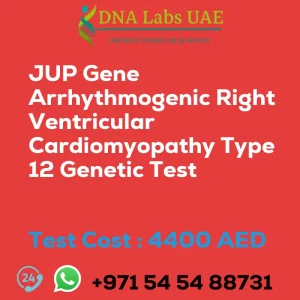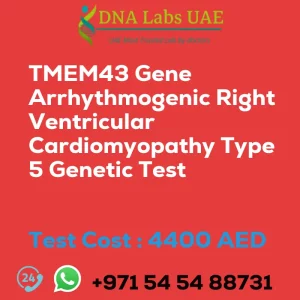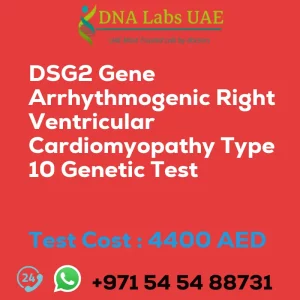MT-ATP8 Gene Cardiomyopathy Infantile Hypertrophic MT-ATP8 Related Genetic Test
Test Name: MT-ATP8 Gene Cardiomyopathy Infantile Hypertrophic MT-ATP8 Related Genetic Test
Components: Blood or Extracted DNA or One drop Blood on FTA Card
Price: 4400.0 AED
Sample Condition: Blood or Extracted DNA or One drop Blood on FTA Card
Report Delivery: 3 to 4 Weeks
Method: NGS Technology
Test Type: Cardiovascular Pneumology Disorders
Doctor: Cardiologist
Test Department: Genetics
Pre Test Information: Clinical History of Patient who is going for MT-ATP8 Gene Cardiomyopathy, infantile hypertrophic, MT-ATP8 related NGS Genetic DNA Test. A Genetic Counselling session to draw a pedigree chart of family members affected with MT-ATP8 Gene Cardiomyopathy, infantile hypertrophic, MT-ATP8 related NGS Genetic DNA Test gene MT-ATP8
Test Details: MT-ATP8 gene cardiomyopathy, also known as infantile hypertrophic cardiomyopathy, is a genetic disorder that affects the heart muscle. It is caused by mutations in the MT-ATP8 gene, which is involved in the production of energy in the mitochondria. Infantile hypertrophic cardiomyopathy is characterized by thickening of the heart muscle, leading to reduced pumping ability and other heart-related problems. Symptoms usually appear in infancy or early childhood and can include difficulty breathing, poor feeding, failure to thrive, and an enlarged heart.
To diagnose MT-ATP8 gene cardiomyopathy, a genetic test called Next-Generation Sequencing (NGS) can be performed. NGS is a high-throughput method that can analyze multiple genes simultaneously, allowing for the detection of mutations in the MT-ATP8 gene and other genes associated with cardiomyopathy. NGS genetic testing involves obtaining a sample of DNA, usually through a blood sample or saliva sample, and sequencing the DNA to identify any mutations or variations in the MT-ATP8 gene. This can help confirm a diagnosis of MT-ATP8 gene cardiomyopathy and provide information about the specific mutation involved.
Genetic testing can be useful for confirming a diagnosis, guiding treatment decisions, and providing information about the risk of passing the condition on to future generations. It can also help with genetic counseling and family planning. It is important to consult with a healthcare professional or genetic counselor to discuss the appropriateness and implications of genetic testing for MT-ATP8 gene cardiomyopathy. They can provide more detailed information about the specific test, its limitations, and the potential benefits and risks involved.
| Test Name | MT-ATP8 Gene Cardiomyopathy infantile hypertrophic MT-ATP8 related Genetic Test |
|---|---|
| Components | |
| Price | 4400.0 AED |
| Sample Condition | Blood or Extracted DNA or One drop Blood on FTA Card |
| Report Delivery | 3 to 4 Weeks |
| Method | NGS Technology |
| Test type | Cardiovascular Pneumology Disorders |
| Doctor | Cardiologist |
| Test Department: | Genetics |
| Pre Test Information | Clinical History of Patient who is going for MT-ATP8 Gene Cardiomyopathy, infantile hypertrophic, MT-ATP8 related NGS Genetic DNA Test. A Genetic Counselling session to draw a pedigree chart of family members affected with MT-ATP8 Gene Cardiomyopathy, infantile hypertrophic, MT-ATP8 related NGS Genetic DNA Test gene MT-ATP8 |
| Test Details |
MT-ATP8 gene cardiomyopathy, also known as infantile hypertrophic cardiomyopathy, is a genetic disorder that affects the heart muscle. It is caused by mutations in the MT-ATP8 gene, which is involved in the production of energy in the mitochondria. Infantile hypertrophic cardiomyopathy is characterized by thickening of the heart muscle, leading to reduced pumping ability and other heart-related problems. Symptoms usually appear in infancy or early childhood and can include difficulty breathing, poor feeding, failure to thrive, and an enlarged heart. To diagnose MT-ATP8 gene cardiomyopathy, a genetic test called Next-Generation Sequencing (NGS) can be performed. NGS is a high-throughput method that can analyze multiple genes simultaneously, allowing for the detection of mutations in the MT-ATP8 gene and other genes associated with cardiomyopathy. NGS genetic testing involves obtaining a sample of DNA, usually through a blood sample or saliva sample, and sequencing the DNA to identify any mutations or variations in the MT-ATP8 gene. This can help confirm a diagnosis of MT-ATP8 gene cardiomyopathy and provide information about the specific mutation involved. Genetic testing can be useful for confirming a diagnosis, guiding treatment decisions, and providing information about the risk of passing the condition on to future generations. It can also help with genetic counseling and family planning. It is important to consult with a healthcare professional or genetic counselor to discuss the appropriateness and implications of genetic testing for MT-ATP8 gene cardiomyopathy. They can provide more detailed information about the specific test, its limitations, and the potential benefits and risks involved. |

